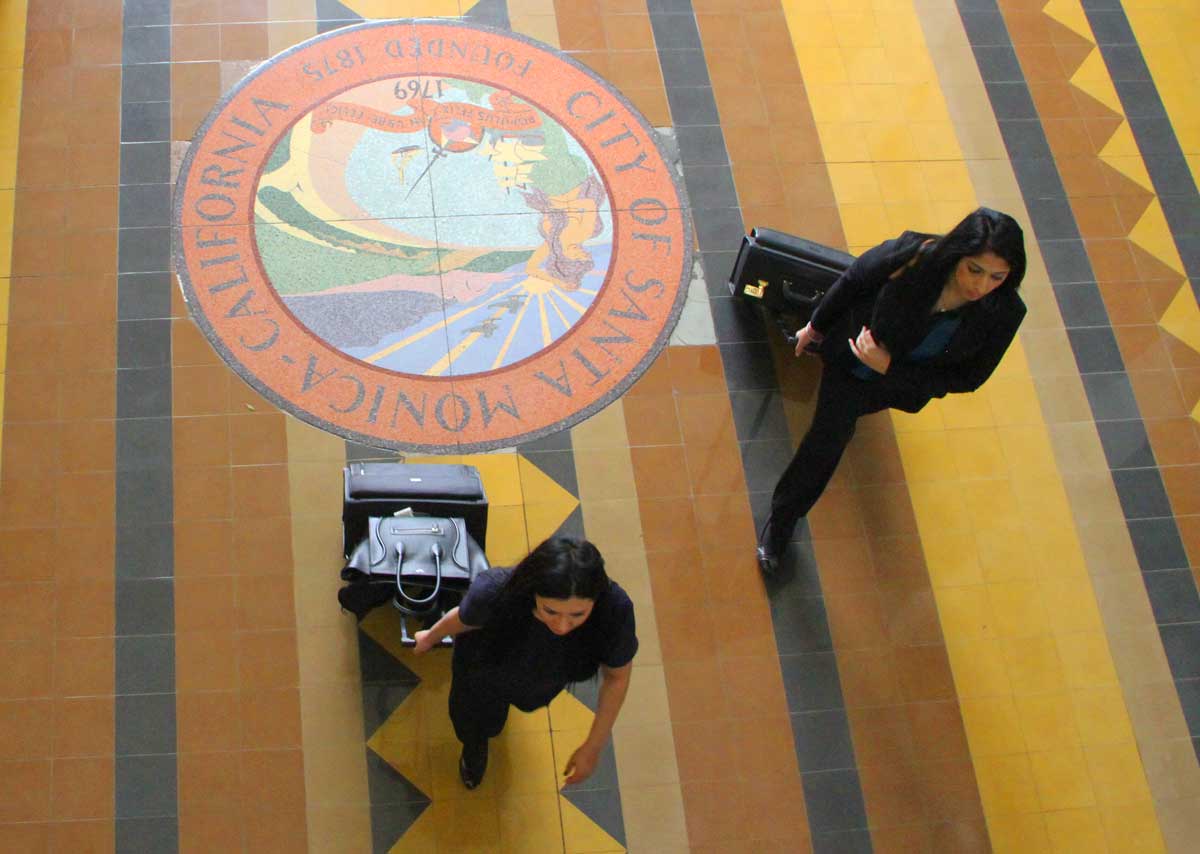
CITY HALL — Property, sales, and business tax revenues are higher than expected but City Hall is projecting a $3.2 million deficit by fiscal year 2017-18.
The increased revenues will be offset by the debt from a $32 million bond used to cover the cost of a new fire station.
Finance Department Director Gigi Decavalles-Hughes updated City Council on the mid-year budget report at their last meeting.
"The properties that were assessed at a lower value during the recession have regained their value and are now being reassessed at a higher value," she said. "This and very strong property sales over the past year have contributed to a 7 percent increase in assessed value for the city and this translates to increased property taxes."
Hotel tax revenues are up by 6 percent as the occupancy rates remain over 85 percent, she said.
Sales tax revenues are up.
Business taxes are stronger than expected.
"This is both due to the success of Santa Monica's strong business sector and also due to enhanced collection efforts on the part of our staff," Decavalles-Hughes said.
All of the boosted revenues are good news for the city by the sea but the deficit could still reach $9.2 million by 2017.
The worst case scenario would result in the event of a future recession, more costly healthcare coverage for employees and additional state takeaways. City Hall has already been hit hard by the dissolution of the redevelopment agency but more losses could be coming. The State Controller's Office is auditing City Hall over the next few weeks to determine if more cash is owed. Last year, City Hall settled a lawsuit with the California Department of Finance over RDA money for $56.78 million.
In the best case scenario, if revenues are higher than projected, City Hall would have a $700,000 deficit by 2017.
"As we find ourselves now on firmer financial footing, I think it's important to note that this is the time that we built into our budget some strategies that will minimize both our financial and our physical risk in the future," Decavalles-Hughes said.
Council accepted her recommendation that they adopt policy to set aside $1 million every year, if available, to reduce unfunded retirement liability of city employees. As baby boomers reach retirement age, their benefits will be a major cost to City Hall.
An increase of the hourly living wage for city employees and contract workers from $14.08 to $15.37 would go into effect in July if the City Council approves it, and cost an extra $1.5 million per year. A majority of the increase would go to contract workers, as only around 200 workers currently make less than $15.37. The council hasn't officially voted for the increase, however, it seems likely and city officials factored it in as part of their budget forecasting.
There were several belated costs added to this fiscal year's budget.
Council recently agreed to set aside $200,000 for the Pier Restoration Corporation to cover the projected loss of revenue from advertising in the Twilight Concert Series. Council voted to downsize the concerts fearing that the large crowds pose a public safety threat.
An additional $105,000 was allocated to cover the first phase of a seismic retrofit program. Building officials and contractors will compile a list of all structures that will need seismic upgrades. If needed, building owners will be required to make the necessary improvements to fortify buildings in case of a future earthquake.
dave@www.smdp.com








